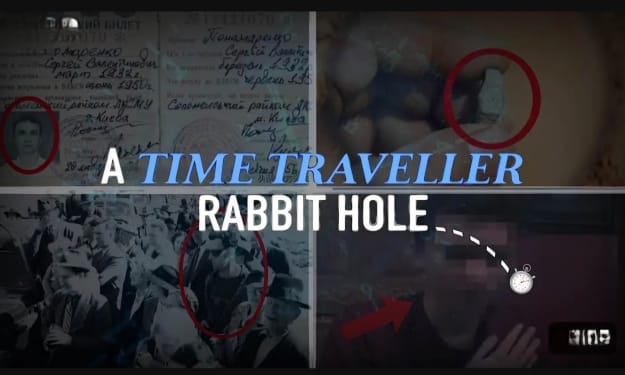## Celestial Origins: Exploring the Mystery of Humanity's Place in the Universe
Were aliens our past rulers

The subject of deity, whether conceived as God, gods, goddess, or goddesses, remains one of the most profound and contentious topics in human history. The quest to understand our origins and the nature of existence often leads us to contemplate higher powers or divine entities. Despite the myriad of beliefs and religions that populate our world, a common thread persists: the enigma of a higher power is interwoven with our history, our origins, and our very essence.
Throughout history, humanity has sought answers to the mysteries of existence. This search often turns inward, as we ponder the nature of God and our own spiritual inclinations. Many people find comfort and purpose in their beliefs, which can make it challenging for alternative viewpoints to gain traction. The mystery surrounding God—or gods—serves not only to uphold individual ideologies but also to reinforce a sense of purpose and calling within each person.
The mystery of God is as much about our origins as it is about understanding the divine. This quest often leads us to look beyond our immediate surroundings to the vast expanse of the sky, the stars, and space itself. If we closely examine our world and the life it sustains, it becomes apparent that something is amiss. Nature thrives on a delicate balance of give and take, where each species contributes to the overall ecosystem. The weak either adapt and survive or perish, thereby replenishing the earth in different forms. This cycle of reciprocity is evident in almost all forms of life—except for humans.
Humans are unique in that we do not seem to fully contribute to the ecosystem. Instead, we deplete resources and disrupt the natural balance. This anomaly raises a profound question: if the planet is designed for reciprocity, why do humans behave differently? Perhaps humanity is not originally a part of this natural system but rather an introduced species. This hypothesis suggests that humans may have been placed on Earth by an external force—possibly extraterrestrial scientists conducting genetic experiments.
The idea that humans did not originate on Earth is not new. It finds echoes in historical chronicles, biblical stories, and ancient myths. The notion of visiting aliens depositing humans on this planet is a concept that has intrigued scholars and laypeople alike. For instance, the Old Testament of the Christian Bible, which is also part of the Judaic Torah, contains the book of Ezekiel. In this book, Ezekiel describes a vision of a kind of ‘chariot’ that many scholars interpret as a potential alien visitation. This interpretation aligns with theories suggesting that advanced extraterrestrial beings may have influenced early human civilizations.
Ancient structures like Stonehenge, the pyramids of Egypt, and the legends of Atlantis are often cited as evidence of possible extraterrestrial influence. These marvels of engineering and architecture seem to defy the technological capabilities of the societies that built them. According to some theories, these structures could be remnants of a time when ‘sky-gods’ visited Earth, leaving behind both physical monuments and a wealth of stories that eventually formed the basis of religious doctrines and myths.
The concept of ancient astronauts has gained traction in recent years, bolstered by new archaeological discoveries and advancements in technology. As we uncover more about our past, we begin to see patterns that suggest a possible extraterrestrial connection. For instance, the precision with which the pyramids were constructed and aligned with celestial bodies indicates a sophisticated understanding of astronomy that seems advanced for the time. Similarly, the tales of Atlantis describe a technologically advanced civilization that disappeared mysteriously, potentially hinting at a lost chapter of human history influenced by extraterrestrial beings.
These ideas challenge traditional narratives and invite us to reconsider our place in the cosmos. They suggest that humanity’s quest for meaning and understanding may extend beyond the confines of Earth. As we continue to explore space, we are not only looking outward for new frontiers but also seeking answers to age-old questions about our origins and the nature of the universe.
Modern scientific endeavors reflect this search for understanding. Space agencies like NASA and private companies like SpaceX are pushing the boundaries of what we know about the universe. The discovery of exoplanets in habitable zones, the search for extraterrestrial intelligence (SETI), and missions to Mars all embody humanity’s drive to explore and understand our place in the cosmos. These efforts are part of a broader attempt to bridge the gap between ancient myths and modern science, to find a coherent narrative that explains our existence.
In the end, the mystery of God—or gods—and the question of our origins remain deeply intertwined. Whether through religious faith, scientific inquiry, or a combination of both, humanity continues to seek answers to the fundamental questions of existence. As we look to the skies and explore the stars, we are not merely seeking new worlds; we are seeking to understand our own.
The journey to uncover the truth about our origins is ongoing. It is a quest that spans cultures, religions, and scientific disciplines. It is a testament to the enduring human spirit and our unyielding desire to understand the mysteries of life. Whether we are the product of divine creation, extraterrestrial intervention, or a natural process of evolution, the search for answers continues to inspire and challenge us. As we stand on the cusp of new discoveries, we must remain open to all possibilities and continue to explore the cosmos with wonder and curiosity.
About the Creator
Enjoyed the story? Support the Creator.
Subscribe for free to receive all their stories in your feed. You could also pledge your support or give them a one-off tip, letting them know you appreciate their work.





Comments
There are no comments for this story
Be the first to respond and start the conversation.